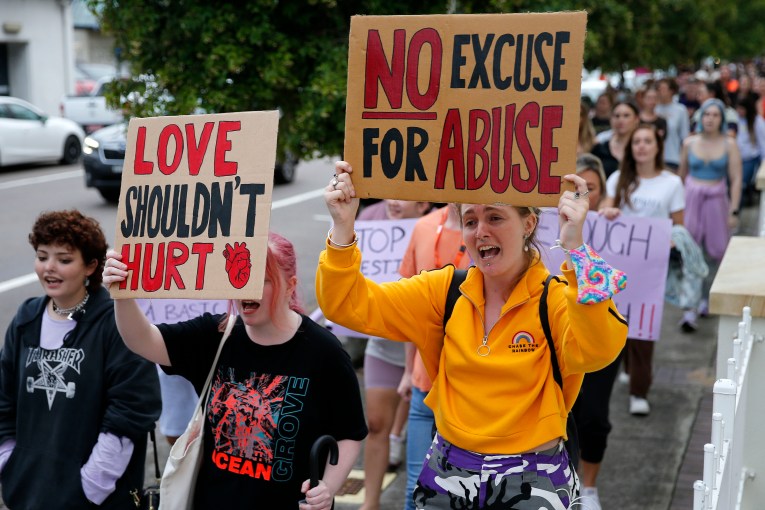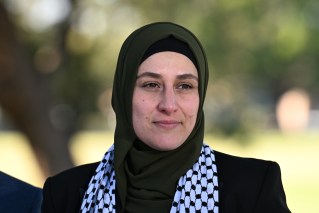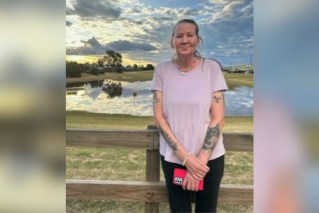Second death after vaccine-linked blood clot, as officials urge calm over ‘rare’ effects

A second Australian has died after a blood clot likely linked to the AstraZeneca COVID vaccine, with three other cases detected in elderly people.
But health experts stress the risk of developing a clot – let alone a fatal one – remains incredibly low, with more than two million doses of the shot given in Australia. Chief Medical Officer Paul Kelly said it was “extremely rare” and that risks decreased in older people.
“I will point out that it is only the second death with now over 3.6 million doses of [AstraZeneca] vaccine being given across Australia,” he said.
Australia has delivered more than 5.48 million doses of COVID vaccines in total.
In the Therapeutic Goods Administration’s latest vaccine safety report, it said the most common side effects remained “commonly experienced with vaccines generally”, such as headaches, arm soreness and fatigue.
There were just 5.3 ‘adverse events’ reported per 1000 doses of vaccine, mostly minor side effects like muscle pain. However, others include a handful more cases of thrombosis with thrombocytopenia syndrome (TTS), a combination of blood clots and low platelets detected in a small number of people who received the AstraZeneca shot.
“Since last week’s report, a further four reports of blood clots and low blood platelets have been assessed as confirmed TTS likely to be linked to the AstraZeneca vaccine,” the TGA said on Thursday.
“One of these cases was in a 52-year-old woman from NSW, who sadly died.”
“We extend our sincere condolences to her family.”

Australia has administered 5.48 million vaccinations. Photo: AAP
The TGA said it was a “rare” condition, just the second death in Australia.
Three other TTS cases were confirmed in a 77-year-old man from NSW, a 70-year-old man from South Australia, and an 87-year-old South Australian woman.
Another four cases were classed as ‘probable’ TTS linked to AstraZeneca.
They were two women aged 50 and 74, and men aged 83 and 91.
The TGA said this took Australia to 35 confirmed cases of TTS after the AstraZeneca jab, and 13 probable cases.
Of those, 31 had been discharged from hospital, 15 remained in hospital, and two had died.
“While TTS is very rare, some people will have concerns that they can discuss with their doctor. This is essential to allow people to make an informed choice,” the TGA said.
Just last week, a statement from the Australian Technical Advisory Group on Immunisation, the nation’s expert panel on vaccines, put into context just how rare the TTS events are.
Analysing data as of May 19, when Australia had administered 2.2 million doses of AstraZeneca, ATAGI said the risk of TTS after the shot was just 1.8 per 100,000 people aged over 50.
For those older than 80, the highest risk group for COVID death, the risk was 1.5 per 100,000.
For people aged under 50 – who are recommended to get the Pfizer jab instead of AstraZeneca – the risk is 3.1 per 100,000.
Professor Kelly, at a Canberra press conference on Thursday afternoon, said the risks of TTS dropped in older people, and urged calm and confidence in the vaccines.
“There is definitely a much lower risk of this event, this clotting events, the older one gets. There is a definite cutpoint there at about the age of 50,” he said.
Professor Kelly said Australian medical experts were getting better at detecting and treating the TTS cases.
The TGA also said it had recorded several cases of myocarditis (inflammation of the heart muscle) and pericarditis (inflammation of the membrane around the heart) in people who’d received the Pfizer vaccine.
As of June 6, the TGA was aware of nine cases of pericarditis and one case of myocarditis.
“There is no indication at present that these cases are due to the vaccine but the TGA is collaborating with international medicine regulators on this issue,” it said.
Health authorities continue to point out that the risk of dying after contracting COVID is much higher than the risk of contracting TTS.
-more to come








